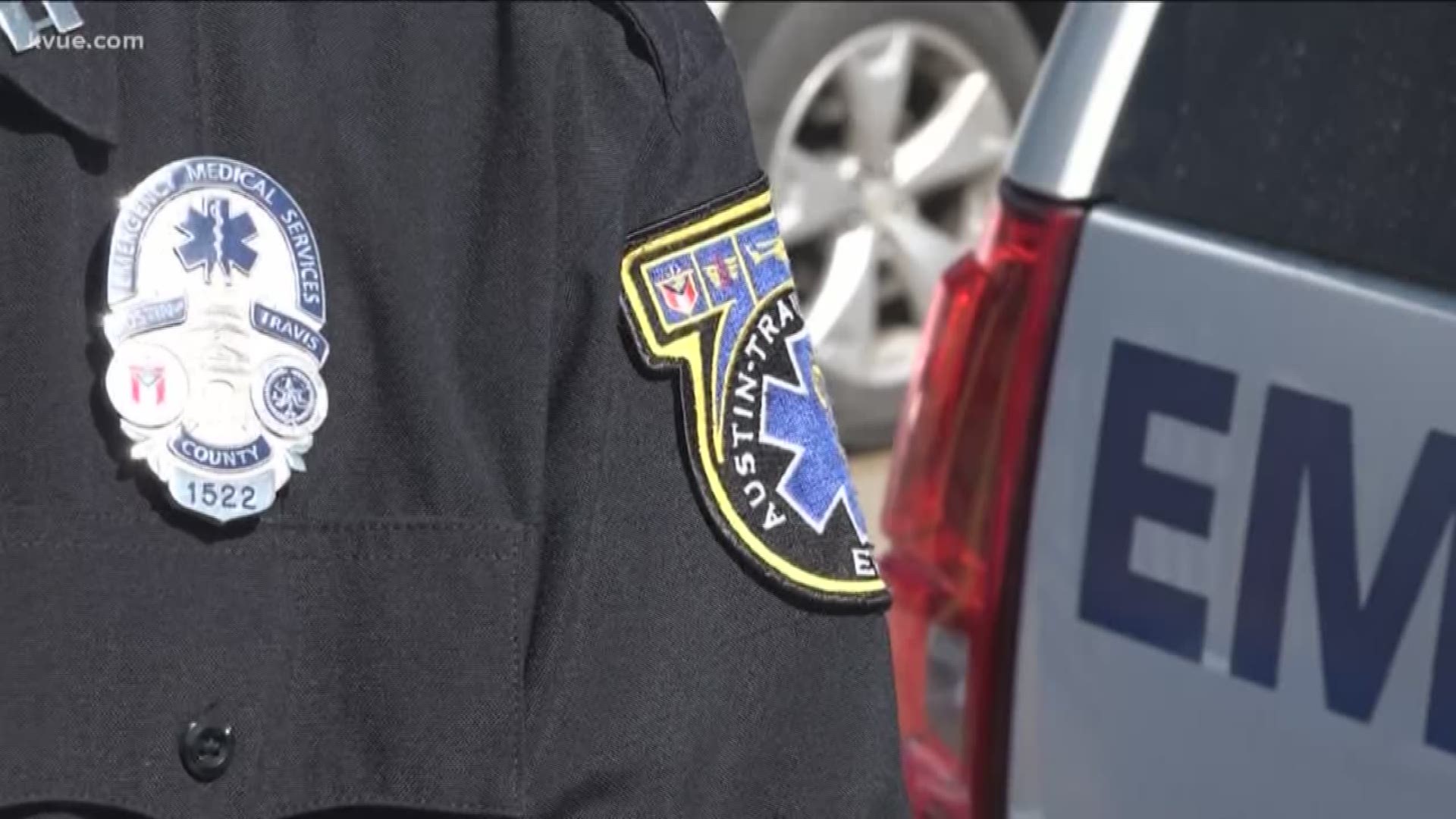AUSTIN, Texas — Paramedics are often the first to arrive in a bad situation, and their work saves lives. But you may not know there's another kind of paramedic who doesn't respond to an emergency in an ambulance – but their work can be just as life-saving.
They're called Community Health Paramedics, or CHPs.
“A Community Health Paramedic is much like a paramedic in an ambulance, but we’re in a vehicle [of] our own, and we do medical and non-medical case management. So that covers a very broad area of skill sets,” said Simon Powell-Evans, an ATCEMS Clinical Specialist with the Community Health Team.
Those skill sets could include connecting people to resources, patching up injuries or just talking to them.
“There are people on our team who work with seniors, there are others that work specifically downtown. We have someone who works are Community First! Village. We have another people that works with people who are incarcerated down at the jail and those areas there,” Powell-Evans said.
Powell-Evans specifically works with people experiencing homelessness and develops a relationship with them – like his client, Margie.
"We have to survive. I'm a survivor," Margie said. "No money, being homeless. It's hard. It's really hard."
Margie said getting around and seeing a doctor was almost impossible for her until she met Powell-Evans.
"We started to get to know each other, I got to trust him," Margie said. “They do a lot of help for us or all of us. They’re helping all of us. We appreciate, they come and check up on us and everything. They assist us for things that we need.”
"If people don't trust you, they don't think you're genuine, they don't think you care about what's going on with them they're not going to tell you anything," Powell-Evans said.
RELATED:
The Austin-Travis County EMS Association is asking the City for 10 more CHPs in next year's budget.
Powell-Evans said their services would relieve emergency rooms and ambulances for serious calls.
"You build longer-term relationships with people, and you’re getting into the depths of why things are happening to them and troubleshooting that with them and helping them overcome those barriers and access services," Powell-Evans said. "So they can basically elevate their situation."
PEOPLE ARE ALSO READING:

